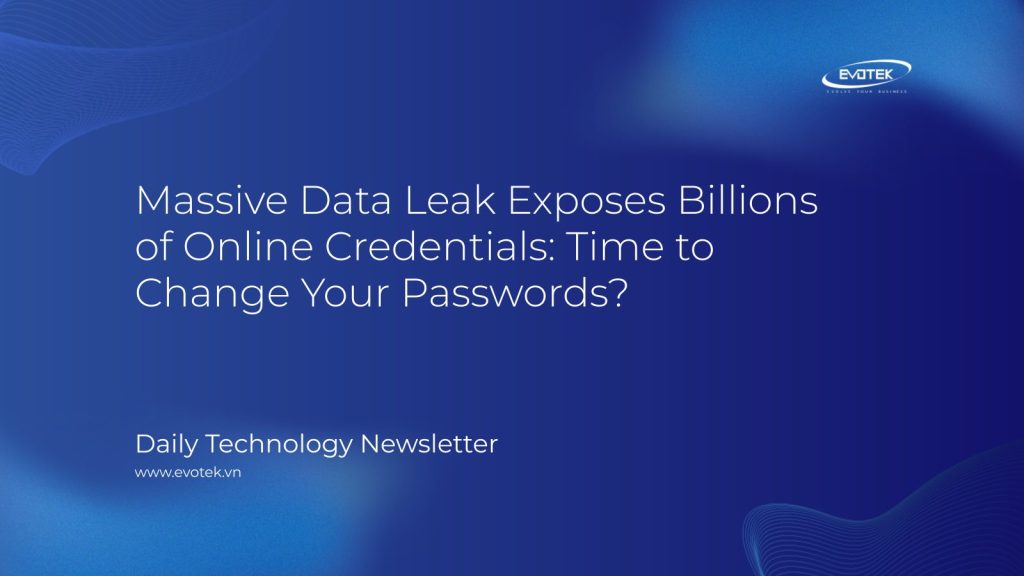Internet users are being urged to bolster their online defenses after a massive leak exposed a staggering 16 billion login credentials. Cybersecurity researchers have uncovered a treasure trove of sensitive data, potentially putting countless online accounts at risk.
The Discovery: What We Know
Cybernews, a tech-focused online publication, reported finding 30 datasets packed with login details harvested from “infostealer” malware and previous data breaches. While the exposure of these datasets was reportedly brief, the sheer volume of compromised credentials – 16 billion records – raises serious concerns.
These credentials could potentially grant cybercriminals access to a wide range of online services, including popular platforms like Facebook, Apple, and Google. However, it’s important to note that these companies haven’t experienced a direct, centralized data breach.
What’s at Stake?
According to Bob Diachenko, the cybersecurity specialist who led the research, the exposed datasets were temporarily accessible due to poor storage practices on remote servers. Diachenko managed to download the files and plans to contact affected individuals and companies.
While some experts remain skeptical about the data’s uniqueness, suggesting it may contain significant repetition, the potential risks remain substantial.
How to Protect Yourself: Key Steps to Take
Here’s what you can do to safeguard your online accounts:
- Change Your Passwords: Update your passwords immediately, especially for critical accounts like email, social media, and banking.
- Enable Multi-Factor Authentication (MFA): Add an extra layer of security by combining your password with another verification method, such as a code sent to your phone.
- Use a Password Manager: Consider using a password manager to generate and store strong, unique passwords for each of your online accounts.
- Check for Compromised Emails: Use the website haveibeenpwned.com to see if your email address has been compromised in any known data breaches.
- Consider Passkeys: Explore passkeys, a password-free authentication method gaining traction among tech giants like Google and Meta.
Experts Weigh In
Cybersecurity experts emphasize the importance of proactive security measures.
Peter Mackenzie, director of incident response and readiness at Sophos, highlights the scale of data accessible to cybercriminals and urges users to update passwords, use password managers, and enable multi-factor authentication.
Toby Lewis, global head of threat analysis at Darktrace, acknowledges the difficulty in verifying the leaked data but confirms the reality of infostealer malware. He recommends good security practices like using password managers and two-factor authentication.
Alan Woodward, a cybersecurity professor at Surrey University, calls for “password spring cleaning” and emphasizes the growing importance of zero-trust security measures.
The Bottom Line
While the full impact of this massive data leak is still unfolding, it serves as a stark reminder of the constant threats in the digital world. By taking proactive steps to strengthen your online security, you can significantly reduce your risk of becoming a victim of cybercrime.

 日本語
日本語 한국어
한국어 Tiếng Việt
Tiếng Việt 简体中文
简体中文